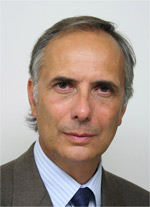MIRIADE: Meet The Challenge - Vincent Lafon
In hard times, it pays to invest in the development of leaders and, as Vincent Lafon tells CEO, the courses taught at the MIT Sloan School of Management offer the required knowledge to succeed in changing markets.
Executives face a range of challenges as their organisations battle to survive and succeed during the global financial crisis. It is during times like these that a sound understanding of the latest business thinking can prove invaluable. One way of gaining an insight into cutting edge business practices is through an executive education programme run by a leading business education provider, such as those offered by the MIT Sloan School of Management in the US.
Vincent Lafon, CEO of MIRIADE, the Lower Normandy Agency for Innovation and Economic Development, a public sector organisation in France, already has an MBA from the INSEAD business school. However, he also understands the importance of continuing to develop his management skills and knowledge.
Lafon, whose wide-ranging career has encompassed stints at IBM and Unisys, strategic consultancy work, as well as founding and running a number of start-ups, has been a participant on several executive education programmes at MIT Sloan. ‘I attended four programmes, for an Executive Certificate in Strategy and Innovation,’ says Lafon.
The executive certificate is awarded to participants who complete four or more open enrolment programmes within a four-year period.
Lafon focused on the strategy and innovation concentration, taking the following programmes: Building, Leading, and Sustaining the Innovative Organisation; Developing and Managing a Successful Technology and Product Strategy; Reinventing Your Business Strategy; and Managing Technical Professionals and Organisations. Other concentrations focus on technology, operations, value chain management, and leadership.
Lafon believes MIT Sloan was an obvious choice for studying innovation and strategy because of the school’s outstanding reputation for both research and teaching. ‘The quality of knowledge, information and advice about current business situations has already proven very useful,’ he says.
With marketing, for example, Lafon explored the importance of social communities and systems. ‘Thirty years ago you had to develop products, twenty years ago it was services, but today you have to develop systems,’ Lafon adds.
‘Systems are focused on close relationships with key stakeholders such as customers and suppliers. It is not a situation where one party wins and the other loses. Instead, suppliers and customers can work together, both emerging as winners through improved practices and increased performance.’
Getting creative
Another area where Lafon has found the teaching insightful is exploring management in relation to the rise of the creative professional.
The days of the lone inventor are largely over and society has progressed from innovation being driven by the work of individuals, through the organisation of professionalised specialism, to today’s situation where innovation is in the hands of millions of people, through collaborative media, such as the internet.
With creativity and innovation becoming more important than ever to organisations, managing creative individuals and teams presents a fresh set of challenges for executives. Effective management of these people requires acknowledgment that their motivation is linked to soft factors rather than to power derived from hierarchies.
The programmes at MIT Sloan helped Lafon understand the psychology of the creative professional, which has proved useful in his current work.
‘All the members of my team are creative professionals,’ he says. ‘It is a priority for me to spend a lot of time with them and help them to improve their performance,’ he says.
It is this ability to relate the learning from the executive education programmes to current challenges in the working environment that underlines the value of programmes such as MIT Sloan’s open enrolment programmes.
‘Whether it is discovering new things in the programmes, or reinforcing knowledge and skills, there is no question that the experience has been a good one,’ says Lafon.
‘It has been good for my career, my job, my employer, and especially for my CV. The programme has been excellent value.’

